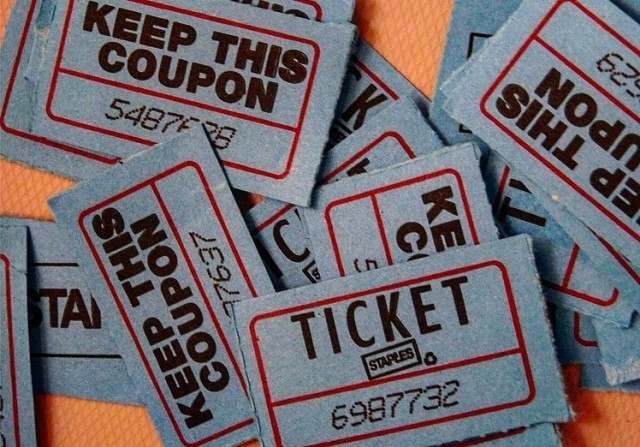If you’re hoping to work in the hospitality industry — specifically sports, entertainment, and event management — have you considered a job in ticket sales? According to industry experts, ticket sales positions are plentiful and a good way to get your foot in the door with a big company.
Johnson & Wales University’s Sports, Entertainment, and Event Management (SEEM) program hosted a “Ticket Talk” event at the Providence Campus to show students what working in ticket sales is all about.
“We wanted to create an event that would generate buzz about ticketing,” said senior SEEM student Riley Robar, who was one of the event’s organizers. “While conducting research about ticketing, we learned that it has made up nearly 90 percent of entry-level jobs within sports and live events, with an emphasis on sales roles.”
Between two panel discussions, several JWU alums and industry professionals answered questions about their careers and offered some advice to those looking to break into ticket sales.
Here are six things you need to know if you’re looking to work in ticket sales, direct from the industry experts:
1. You must have good people skills.
Are you a people person? Talking to people and building relationships with potential customers is a huge part of the job, according to the experts. Tiffany Philyaw, a JWU grad who now works as a Member Experience Executive for the Boston Celtics, said building a relationship with the customer is the key to making the sale — especially if they are a season ticket-holder. “Sometimes if I’m calling and they’re not getting back to me, I’ll stop by their seat during a game,” she said. “When people see that you’re persistent and they see that you actually care, people will come back.”
2. It’s not a 9-to-5 job.
Ticket sales associates do not follow a typical work schedule, especially if they’re working in sports ticketing or events. Daniel Chizmar, who serves as the Vice President of Tickets and Events at PSE Agency and the Providence Bruins, said events are usually on weekends. “It’s a long season. For hockey, it’s a six-month season and there are a lot of weekend games,” he said. “During the season, you can count your weekends out. During the week, you’re working 55 to 60 hours a week. You’re going to get as much out of it as you put into it.”
3. You’ll find yourself on the phone a lot.
This career isn’t for someone who is afraid to make a phone call. According to Brandon Gilson, Premium Seats Sales Manager at Live Nation Entertainment, he often finds himself calling dozens of people every day. “I make about 50 to 65 phone calls [a day] to new businesses to set up face-to-face meetings,” he said. “And then I follow up with all of my clients.”
4. Creativity isn’t lost in sales.
You won’t always chained to the phone, though. Brian Radle, Assistant General Manager of Ticketing and Promotions for the Lowell Spinners, said he loves the creative aspect that comes along with his job. “I love minor league baseball, and I love the creativity that the industry encourages,” he said. “It’s really enjoyable to have a vision for something and having it come to life so people can love it and respond to it.”
5. You need to be passionate about what you’re selling to be successful.
When you’re selling tickets for an event — whether it’s a baseball game, concert, or fundraising dinner — you have to show that you’re passionate about the event. If you aren’t, it’s going to be difficult to convince others that they want to attend. According to Tyler Shaker, Director of Sales and Service at Aspire Group at UCONN, hiring managers are looking for associates who are willing to go above and beyond to make their sales. “I want someone who is really passionate about what they’re selling and they want to be in sales,” he said.
6. The satisfaction of a happy customer will overshadow everything else.
Yes, ticket sales associates work long hours and often spend their nights and weekends at events, but most experts will agree that seeing the fruits of their labor, like a sold out game or a packed concert, makes it all worth it. “Just seeing a good crowd, something that our team helped to create, and seeing how our team responds — that’s what turns it from a game to an event,” Shaker said. “I love being able to see the things that my team and I have been able to accomplish.”
If you want more information about earning your degree in Sports, Entertainment, Event — Management online, complete the “Request Info” form on this page or call 855-JWU-1881. For information on our other degree programs, visit our online degree programs page.
